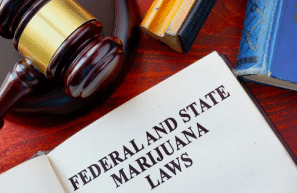People from all walks of life have been debating medical marijuana for some time now. Medical marijuana has received more attention from legislators, scientists, researchers, clinicians, and the general public than any other topic.
It has been shown that medicinal marijuana may help alleviate the symptoms of some conditions, provided that doctors keep a close eye on how much is taken and how often it’s used. Note that you may need a medical marijuana card which is a government-issued identification card that allows a patient to possess and use medical marijuana despite the lack of the Food and Drug Administration’s approval.
The process of obtaining a medical marijuana card depends on the laws and policies of different states. For example, marijuana cards Arkansas can be used to look for the website of a marijuana doctor, a portal that enables people to search for and find a medical marijuana doctor in the state.
Nevertheless, there have been several testimonies from medicinal marijuana users, yet some Americans remain skeptical.
Opposing Views On Medical Marijuana
It’s common for advocates and opponents of state-level marijuana legalization to make a variety of arguments. Advocates claim that legalizing decreases crime rates, lowers criminal justice expenses, improves public health, generates tax revenue, enhances traffic safety, and promotes the economy.
On the other hand, critics believe that legalization encourages the use of marijuana and other drugs and alcohol, increases crime rates, decreases traffic safety, affects public health, and reduces the scholastic accomplishment of teenagers, among other things.
Some of the assertions made by those who favor legalization and oppose it may be greatly exaggerated. In some instances, they’re entirely unsupported by actual legalizations.
Updated Researches On The Use Of Medical Marijuana
Marijuana usage did not alter as a result of the first wave of decriminalization in the 1970s. According to studies on the effects of state legalization in the US, decriminalizing drugs has had little to no influence on drug usage.
As part of a prior study, these claims used data from states that legalized recreational marijuana usage by the middle of 2018. It has been three years since the first states legalized marijuana, and prior findings account for this period.
The first annual conference of the Consortium for Medical Marijuana Clinical Outcomes Research was held in April 2021. It was organized to promote and disseminate research on the clinical outcomes of medical marijuana. The conference featured several key themes, such as The importance of establishing a clear understanding of the clinical outcomes of medical marijuana.
Despite the promise of its efficacy, there’s limited evidence supporting its safety and effectiveness. Little is known about the effects of menthol on clinical outcomes. This lack of knowledge is among the factors that prevent the development of effective policies and clinical guidelines on the use of medical marijuana.
To summarize, it was found that both proponents and detractors of the theory inflated or lacked evidence to back up the statements that states with legalized marijuana markets have generated millions of dollars in state tax income, making this an exception. Only two states were yet to allow retail sales of marijuana as of July 2020. Marijuana is legal in Vermont and the District of Columbia, but it can’t be sold or purchased in any state.
The findings are bolstered by new evidence. Even though there are two more years of data, evaluations of the impacts of legalization are still in question. Despite this, the available data gives other states a good idea of what to anticipate if they decide to legalize marijuana or implement similar regulations.
Thus, some states, such as the Florida Legislature, established the Medical Marijuana Clinical Outcome Research Consortium to address the need for robust evidence on the effectiveness and safety of MM. The consortium is charged with developing and implementing a comprehensive research program that’ll support the dissemination and support rigorous scientific studies.
Research On The People’s Stand About The Use Of Medical Marijuana
As more states legalize the use of marijuana, a majority of Americans say it should be legal for both medical and recreational use. A new survey released in April 2021 revealed that only 44% of Americans support the decriminalizing of marijuana. The findings come as Congress prepares to consider legislation that would do so.
An overwhelming majority of people in the United States (91%) either believe marijuana should be allowed for medicinal and recreational use (60%) or think it should be legal for medical use solely (31%). Fewer than one-in-ten (8%) believe marijuana should be illegal for adult usage.
Pew Research Center conducted the latest study from April 5-11, 2021, as congressional Democrats discuss proposals to legalize marijuana nationwide. Since 2019, attitudes on marijuana legalization have remained mostly stable.
While both parties agree on the need for marijuana to be legal for medical use and recreational use, they also have different age divisions. About a quarter of Republican voters aged 65 and older say they would support allowing the use of marijuana for medical or recreational purposes.
There have always been generational and party divides in attitudes about marijuana, which continues to be the case today. Very few persons of any age are adamantly opposed to marijuana legalization. Elderly folks, on the other hand, are significantly less likely than young persons to support marijuana legalization for recreational use.
Legalization Of Medical Marijuana In Some States
Those states that have legalized marijuana for recreational and medicinal reasons have seen the most dramatic examples of states deviating from federal regulation, such as:
- Alaska
- California
- Colorado
- Illinois
- Maine
- Massachusetts
- Michigan
- Nevada
- Oregon
- Vermont
- Washington
Vote-driven ballot initiatives in almost every state that has legalized marijuana so far have been the most common method. To launch the first marijuana stores, states typically wait for one to two years after legalizing marijuana to set up license criteria and regulations and levy marijuana taxes.
Marijuana decriminalization propositions appeared on the 2020 state ballots in an increasing number of states. Marijuana for recreational use has been legalized in Arizona, New Jersey, South Dakota, and Montana. Medical marijuana is now legal in Mississippi and South Dakota after voters passed ballot proposals in both states.
According to the Marijuana Policy Project, 23 states have legislation to legalize marijuana, 14 states have laws to decriminalize marijuana, and 12 states have bills to establish medical marijuana programs as of November 2020.
As a general rule, most states begin by decriminalizing, then medicalizing, and, finally, legalizing. Although several communities had implemented local decriminalization legislation by the time Michigan legalized medicinal marijuana, it wasn’t decriminalized statewide before that time.
Takeaway
The previous study incorporates new data and the expansion of legalized marijuana in the United States. However, the judgments remain unchanged, but the evidence on the impact of legalization is insufficient to make firm conclusions. It’s still helpful to know what other states may anticipate due to legalization or other legislations.



















